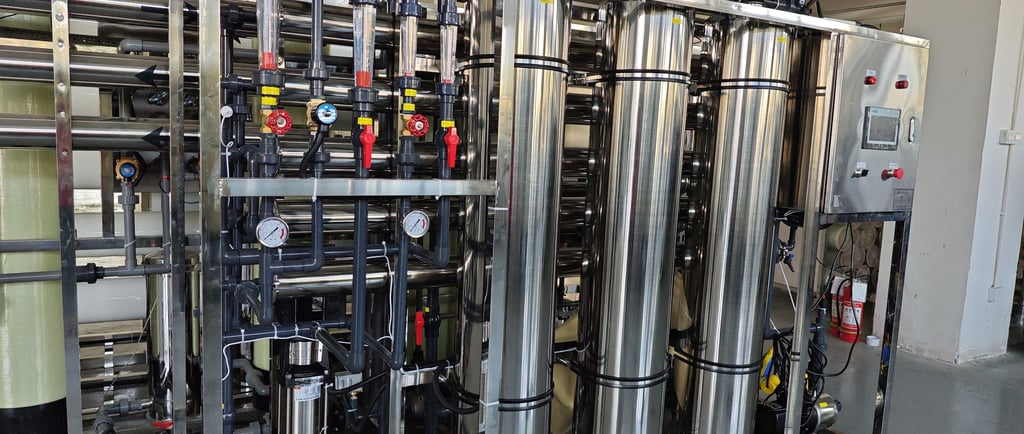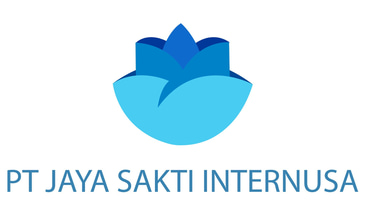From Raw Water to Wastewater: Complete Solutions for Every Industry


Water is more than just a resource—it is the lifeblood of industry. Whether it is used for cooling machinery, manufacturing products, or ensuring sanitation, water management plays a crucial role in industrial success. Yet, managing water efficiently from the moment it enters a facility as raw water until it leaves as treated wastewater is a challenge many industries face.
This is where complete water solutions become essential. By addressing every stage of the water cycle, businesses can not only ensure operational efficiency but also meet growing sustainability and compliance demands. In Indonesia, companies like PT Jaya Sakti Internusa have become leaders in delivering integrated water treatment systems designed to handle the full spectrum of industrial water needs.
The Importance of Comprehensive Water Management
Industrial facilities cannot afford to view water treatment as a single process. From sourcing raw water to discharging wastewater, each stage requires specialized technology and careful management. Failing to treat raw water adequately can damage equipment and reduce efficiency. Likewise, neglecting wastewater treatment can result in environmental harm and regulatory penalties.
A comprehensive water management approach ensures that water is treated, recycled, and reused wherever possible. This not only reduces costs but also minimizes environmental impact. According to the World Bank, industries are among the largest consumers of water globally, which highlights the importance of sustainable practices. By adopting complete water solutions, businesses can optimize their operations while contributing to global water conservation efforts.
Raw Water Treatment: The First Step in the Cycle
The journey of industrial water begins with raw water—whether sourced from rivers, wells, or municipal supplies. However, raw water often contains impurities such as sediments, minerals, and microorganisms. Without proper treatment, these impurities can cause scaling, corrosion, or contamination in industrial systems.
Raw water treatment typically involves processes like sedimentation, filtration, and chemical dosing. These steps ensure that the water entering the system meets the necessary standards for industrial use. For industries with high-quality demands, technologies such as reverse osmosis or ultrafiltration may also be used to ensure purity.
By starting with reliable raw water treatment, industries set the foundation for efficient operations. Clean water not only improves equipment lifespan but also enhances product quality and ensures compliance with health and safety regulations.
Process Water: Keeping Operations Running Smoothly
Once raw water is treated, it becomes process water—used directly in manufacturing, cooling, or heating. The quality of process water is critical because even minor impurities can disrupt production, lower efficiency, and increase maintenance costs.
For example, in the food and beverage industry, water quality directly affects product safety and taste. In the energy sector, impurities in process water can reduce the efficiency of turbines and boilers. This is why industries require tailored solutions to meet their specific needs.
Technologies such as ion exchange, nanofiltration, and specialized chemical treatment are often used to maintain water quality. Providers like PT Jaya Sakti Internusa deliver customized solutions that align with each industry’s unique processes, ensuring that water supports rather than hinders operations.
Cooling Towers and Industrial Efficiency
Cooling towers represent one of the most significant water consumers in industrial facilities. Their role is to dissipate heat from systems, ensuring smooth and efficient operations. However, they are also vulnerable to issues such as scaling, corrosion, and biological growth when water quality is not adequately managed.
By integrating water treatment systems into cooling tower operations, industries can minimize these risks. For instance, chemical dosing helps control microbial growth, while filtration and softening processes prevent scaling. Advanced monitoring systems can also provide real-time updates, allowing operators to respond quickly to changes in water quality.
Efficient cooling tower management not only protects equipment but also reduces energy and water consumption. This is essential for industries seeking to balance productivity with sustainability goals.
Wastewater Treatment: Turning Waste into Resource
At the end of the industrial water cycle lies wastewater treatment. Rather than viewing wastewater as a burden, modern industries see it as an opportunity. Through advanced treatment technologies, wastewater can be recycled and reused, reducing overall water demand.
Wastewater treatment often involves multiple stages, including primary sedimentation, biological treatment, and advanced filtration. These processes remove contaminants, making the water safe for discharge or reuse. Some industries even go further by implementing zero-liquid discharge (ZLD) systems, ensuring that no water is wasted.
Recycling wastewater not only lowers costs but also demonstrates a commitment to sustainability. In regions where water scarcity is a pressing issue, this approach helps industries secure their operations while supporting community needs.
Integrated Water Solutions for Every Industry
One of the biggest challenges industries face is managing multiple vendors for different parts of the water cycle. This fragmented approach can lead to inefficiencies, higher costs, and operational risks. Integrated solutions solve this problem by offering a single provider that manages everything from raw water treatment to wastewater recycling.
Companies like PT Jaya Sakti Internusa provide exactly this kind of end-to-end service. Their expertise covers raw water purification, process water management, cooling tower solutions, and wastewater treatment. By choosing a single partner, industries can streamline operations, reduce downtime, and ensure consistent water quality across all stages.
This approach also ensures better compliance with environmental regulations, as one provider can oversee the entire water management system and make adjustments as needed.
Sustainability and Compliance in Water Treatment
As environmental concerns grow, sustainability has become a central focus for industries worldwide. In Indonesia, government regulations encourage businesses to adopt practices that conserve water and reduce pollution. Aligning with these regulations is not only necessary for legal compliance but also essential for building long-term trust with stakeholders.
Complete water solutions contribute directly to sustainability goals. By treating raw water effectively, industries reduce waste. By optimizing process water, they increase efficiency. By recycling wastewater, they conserve valuable resources. This holistic approach demonstrates a commitment to responsible operations that benefits both businesses and communities.
With sustainability now tied to corporate reputation and competitiveness, industries that adopt integrated water solutions position themselves as leaders in their fields.
PT Jaya Sakti Internusa: Your Trusted Water Treatment Partner
For over two decades, PT Jaya Sakti Internusa has been a trusted partner for industries seeking complete water solutions. Established in 1998, the company has built a reputation for delivering reliable, efficient, and sustainable systems that address every stage of the industrial water cycle.
From advanced technologies like reverse osmosis and ultrafiltration to practical solutions for cooling towers and wastewater recycling, PT Jaya Sakti Internusa offers a total program tailored to industrial needs. Supported by a team of experienced engineers and backed by ISO and SNI certifications, the company ensures that every solution meets international quality standards.
By choosing PT Jaya Sakti Internusa, industries gain more than just a service provider—they gain a partner dedicated to long-term success, sustainability, and efficiency.
Conclusion
Managing water from its raw state to final discharge is one of the most critical challenges industries face today. A fragmented approach is no longer enough. What industries need are complete water solutions that ensure efficiency, compliance, and sustainability at every stage of the cycle.
From raw water purification to wastewater recycling, solutions delivered by companies like PT Jaya Sakti Internusa represent the future of industrial water management. By embracing integrated systems, industries in Indonesia and beyond can reduce costs, protect resources, and ensure operational excellence for years to come.
In a world where water is increasingly scarce and sustainability is no longer optional, adopting complete solutions from raw water to wastewater is not just a smart business decision—it is a necessity.
